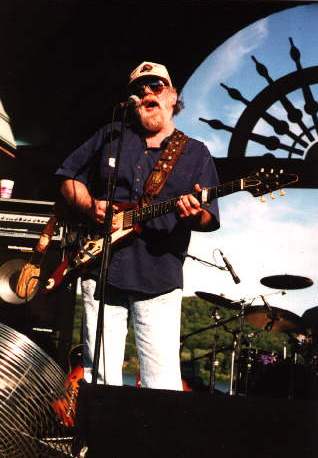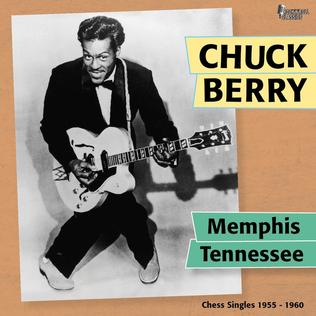
Mathis James Reed was an American blues musician and songwriter. His particular style of electric blues was popular with a wide variety of audiences. Reed's songs such as "Honest I Do" (1957), "Baby What You Want Me to Do" (1960), "Big Boss Man" (1961), and "Bright Lights, Big City" (1961) appeared on both Billboard magazine's R&B and Hot 100 singles charts.

Robert Calvin Bland, known professionally as Bobby "Blue" Bland, was an American blues singer.

Ronald Charles McKernan, known as Pigpen, was an American musician. He was a founding member of the San Francisco band the Grateful Dead and played in the group from 1965 to 1972.

Live/Dead is the first official live album released by the rock band Grateful Dead. Recorded over a series of concerts in early 1969 and released later the same year, it was the first live rock album to use 16-track recording.
"Mack the Knife" or "The Ballad of Mack the Knife" is a song composed by Kurt Weill with lyrics by Bertolt Brecht for their 1928 music drama The Threepenny Opera. The song tells of a knife-wielding criminal of the London underworld from the musical named Macheath, the "Mack the Knife" of the title.

"Me and Bobby McGee" is a song written by American singer-songwriter Kris Kristofferson and originally performed by Roger Miller. Fred Foster shares the writing credit, as Kristofferson wrote the song based on a suggestion from Foster. A posthumously released version by Janis Joplin topped the Billboard Hot 100 in 1971, making the song the second posthumously released No. 1 single in U.S. chart history after "(Sittin' On) The Dock of the Bay" by Otis Redding. Gordon Lightfoot released a version that reached number 1 on the Canadian country charts in 1970. Jerry Lee Lewis released a version that was number 1 on the country charts in December 1971/January 1972 as the "B" side of "Would You Take Another Chance on Me". Billboard ranked Joplin's version as the No. 11 song for 1971.
Blues rock is a fusion genre and form of rock music that relies on the chords/scales and instrumental improvisation of blues. It is mostly an electric ensemble-style music with instrumentation similar to electric blues and rock. From its beginnings in the early to mid-1960s, blues rock has gone through several stylistic shifts and along the way it inspired and influenced hard rock, Southern rock, and early heavy metal.

Lonnie McIntosh, known as Lonnie Mack, was an American singer-songwriter and guitarist. He was influential in the development of blues rock music and rock guitar soloing.
"He Was a Friend of Mine" is a traditional folk song in which the singer laments the death of a friend. Ethnomusicologist Alan Lomax was the first to collect the song, in 1939, describing it as a "blues" that was "a dirge for a dead comrade."

Rockin' the Rhein with the Grateful Dead is a Grateful Dead triple live album released in 2004. It was recorded April 24, 1972, at "Rheinhallen", in the German town of Düsseldorf, during the band's European tour of 1972. The complete concert is included, but the order of the tracks on the CD was altered to fit the show on three discs, while preserving groups of segued tracks.

"Call It Stormy Monday (But Tuesday Is Just as Bad)" (commonly referred to as "Stormy Monday") is a song written and recorded by American blues electric guitar pioneer T-Bone Walker. It is a slow twelve-bar blues performed in the West Coast blues-style that features Walker's smooth, plaintive vocal and distinctive guitar work. As well as becoming a record chart hit in 1948, it inspired B.B. King and others to take up the electric guitar. "Stormy Monday" became Walker's best-known and most-recorded song.
"Susie Q" is a rockabilly song co-written and performed by American musician Dale Hawkins released in 1957. The song was a commercial success and became a classic of the early rock and roll era, being recorded by many other performers in subsequent years.

"Good Lovin'" is a song written by Rudy Clark and Arthur Resnick that was a #1 hit single for the Young Rascals in 1966.

"Memphis, Tennessee", sometimes shortened to "Memphis", is a song by Chuck Berry, first released in 1959. In the UK, the song charted at number 6 in 1963; at the same time Decca Records issued a cover version in the UK by Dave Berry and the Cruisers, which also became a UK Top 20 hit single. Johnny Rivers's version of the song was a number two US hit in 1964.
"Big Boss Man" is a blues song first recorded by Jimmy Reed in 1960. It became one of his most popular songs, although the songwriting is credited to Luther Dixon and Al Smith. Chicago-based Vee-Jay Records released it as a single, which became one of Reed's last appearances on the record charts. The song has been recorded by artists in diverse styles, including Elvis Presley, B.B. King, and Hope Sandoval, who also had chart successes with the song.
"Ain't No Love in the Heart of the City" is a 1974 R&B song written by Michael Price and Dan Walsh, and first recorded by Bobby "Blue" Bland for his Dreamer album on the ABC Dunhill label.
"Share Your Love with Me" is a song written by Alfred Braggs and Deadric Malone. It was originally recorded by blues singer Bobby "Blue" Bland. Over the years, the song has been covered by various artists, most notably Aretha Franklin who won a Grammy Award for her 1969 rendition. Other artists who covered the song include The Band in 1973, Kenny Rogers in 1981, and most recently, Van Morrison in 2016.

"Farther Up the Road" or "Further on Up the Road" is a blues song first recorded in 1957 by Bobby "Blue" Bland. It is an early influential Texas shuffle and features guitar playing that represents the transition from the 1940s blues style to the 1960s blues-rock style.
"Chains Of Love", a 12-bar blues, was written by Doc Pomus.

Dave's Picks Volume 10 is a three-CD live album by the rock band the Grateful Dead. It contains the complete concert recorded on December 12, 1969, at the Thelma music venue in Los Angeles, California. It was produced as a limited edition of 14,000 numbered copies, and was released on May 1, 2014.












